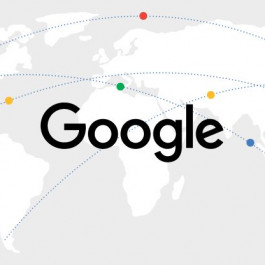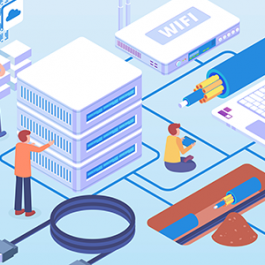
OpenFlow start-up Big Switch Networks is submitting its controller software to the open-source community in order to catalyze an ecosystem of application developers, according to GigaOm.
Cisco says it’s adding OpenFlow to its Nexus switches. It also says it’s formulating a response to OpenFlow as many vendors – including Big Switch open sources its controller source code to spur ecosystem, innovation…
Network virtualization startup Big Switch Networks this week confirmed the release of an open-source controller based on OpenFlow, the increasingly popular switching and communications protocol that addresses packet routing on a software layer that’s separate from a network’s physical infrastructure.
Big Switch is releasing the source code for Floodlight, its controller software, via its web site. The hope is to spur app development around the controller while also anticipating the release of a commercial version of Floodlight later this year, according to Big Switch co-founder Kyle Forster.
“We’re building applications ourselves, but we’re also actively working with partners who are building their own applications on top,” Forster told CRN this week. “Why open source? We look at MySQL as a lighthouse example: we can get to an incredibly high performance, high quality code base for a core controller.”
OpenFlow start-up Big Switch Networks is submitting its controller software to the open-source community in order to catalyze an ecosystem of application developers, according to GigaOm. The Big Switch software, called Floodlight, is offered under the same Apache 2.0 license as Hadoop and OpenStack, the open-source projects for distributed processing of large data sets and cloud computing, respectively.
OpenFlow is a communications protocol that gives access to the forwarding plane of a network switch or router over the network. In simpler terms, OpenFlow allows the path-of-network-packets-through-the-network-of-switches to be determined by software running on a separate server. This separation of the control from the forwarding allows for more sophisticated traffic management than what is feasible using access control lists (ACL)s and routing protocols. Its inventors consider OpenFlow an enabler of “Software Defined Networking”.
OpenFlow has been implemented by a number of network switch and router vendors including Brocade Communications, Arista Networks, Cisco, Extreme Networks, IBM, Juniper Networks, Hewlett-Packard, and NEC. Some network control plane implementations use the protocol to manage the network forwarding elements. OpenFlow is mainly used between the switch and controller on secure channel.
Version 1.1.0 of the OpenFlow protocol was released on February 28, 2011 and is still maintained at openflow.org, but new development of the standard was managed by the Open Networking Foundation.
The major theoretical benefit of OpenFlow, one of the key protocols in the so-called software-defined networking (SDN) movement, is its flexibility. OpenFlow controllers can send instructions to any OpenFlow-enabled switch, regardless of who manufactured it, making it easy for organizations to build virtualized networking infrastructure that’s easier to program and easier to customize. Much attention has shifted to OpenFlow could affect big networking players like Cisco and Juniper thanks to how widespread adoption of OpenFlow products would further commoditize the switch market
Sample applications considered to be a fit for OpenFlow include load balancing, energy and power efficiency, multi-tenant isolation in a data center, flow control in cloud computing environments, and VLAN management.
Cisco says it’s adding OpenFlow to its Nexus switches. It also says it’s formulating a response to OpenFlow as many vendors – including Big Switch – see it as a way to chip away at Cisco’s omnipresence in networking, and commoditize network hardware. Says Big Switch co-founder Kyle Forster in the GigaOm post: “Since networking is dominated by one big company we think it’s going to take a whole ecosystem to make a change.”
Juniper, meanwhile, just added OpenFlow 1.0 to its Junos SDK. The spec has scores of other proponents – and detractors – and a host of start-ups either endorsing OpenFlow or its SDN objectives. Embrane and Contextream are two, and others include Nicira, Gnodal Networks and LineRate Systems.
Big Switch is releasing the Floodlight controller source code on its website. With it, the company hopes to cultivate acres of applications for its, and perhaps other, OpenFlow controllers.
More Related: Cisco Switches: List of Main Features and Types
OpenFlow and SDN, the Networking’s Future?






